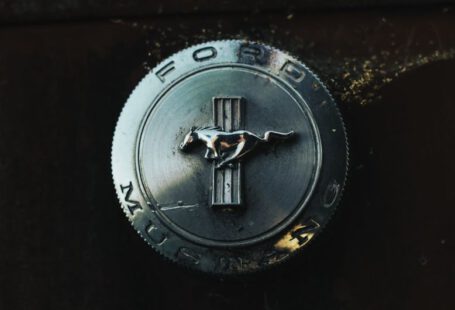When it comes to modifying cars, enthusiasts are constantly looking for ways to enhance performance and stand out on the road. One common question that frequently arises among Mustang owners is whether it’s possible to convert their beloved rear-wheel-drive muscle car into an all-wheel-drive powerhouse. The idea of all-wheel drive (AWD) offers benefits such as improved traction, better handling, and enhanced stability, making it an appealing prospect for those seeking to take their Mustang to the next level. Let’s delve into the possibilities and considerations of converting a Mustang to all-wheel drive.
The Appeal of All-Wheel Drive for Mustang Owners
Mustang enthusiasts are always on the lookout for ways to push the boundaries of their vehicles. The allure of all-wheel drive lies in its ability to provide better grip and acceleration, especially in challenging road conditions such as rain or snow. By distributing power to all four wheels, AWD systems can significantly enhance a car’s performance, making it a tempting option for those looking to boost their Mustang’s capabilities.
The Complexity of Converting to All-Wheel Drive
While the idea of transforming a rear-wheel-drive Mustang into an all-wheel-drive beast may seem enticing, the reality is that such a conversion is no simple feat. Unlike bolt-on modifications or upgrades, converting a car to all-wheel drive involves extensive modifications to the drivetrain, suspension, and other critical components. It requires a high level of expertise, time, and financial investment to execute successfully.
Drivetrain Considerations
One of the primary challenges of converting a Mustang to all-wheel drive is the fundamental difference in drivetrain layout. Rear-wheel-drive vehicles like the Mustang have a drivetrain configuration that sends power exclusively to the rear wheels. In contrast, AWD systems distribute power to all four wheels, necessitating the addition of a front differential, driveshaft, and other components to accommodate the change.
Suspension and Chassis Modifications
In addition to drivetrain alterations, converting a Mustang to all-wheel drive also requires significant changes to the suspension and chassis. AWD systems can add weight and complexity to a vehicle, impacting its handling characteristics and overall performance. To ensure that the car remains balanced and drivable, modifications to the suspension geometry, frame, and other structural elements may be necessary.
Technical Challenges and Custom Fabrication
Converting a Mustang to all-wheel drive involves a host of technical challenges that require custom fabrication and engineering expertise. From adapting the AWD system to fit within the existing chassis to integrating electronic components and sensors, the process demands meticulous attention to detail and precision. It’s essential to work with experienced professionals who have the knowledge and skills to execute such a complex conversion.
Cost and Feasibility
The cost of converting a Mustang to all-wheel drive can vary significantly depending on the extent of the modifications and the quality of parts used. Custom fabrication, specialized components, and labor costs can quickly add up, making it a substantial investment for enthusiasts. Before embarking on such a project, it’s essential to weigh the feasibility and practicality of converting your Mustang to AWD against the potential benefits it may offer.
Exploring Alternative Options
While converting a Mustang to all-wheel drive presents significant challenges, there are alternative ways to enhance its performance without undergoing a full AWD conversion. Upgrades such as performance suspension components, high-performance tires, and a limited-slip differential can help improve traction and handling without the complexity and cost of converting to AWD. Additionally, aftermarket tuning and modifications can further enhance the Mustang’s power and agility without the need for a complete drivetrain overhaul.
In conclusion, the idea of converting a Mustang to all-wheel drive is a tantalizing prospect for enthusiasts seeking to unlock new levels of performance and capability. However, the complexity, cost, and technical challenges involved in such a conversion make it a daunting endeavor that requires careful consideration. While AWD can offer significant benefits in terms of traction and handling, exploring alternative upgrades and modifications may provide a more practical and cost-effective way to enhance your Mustang’s performance on the road. Ultimately, the decision to convert your Mustang to all-wheel drive should be weighed against the potential benefits and challenges it entails, ensuring that you make an informed choice that aligns with your goals as a car enthusiast.





